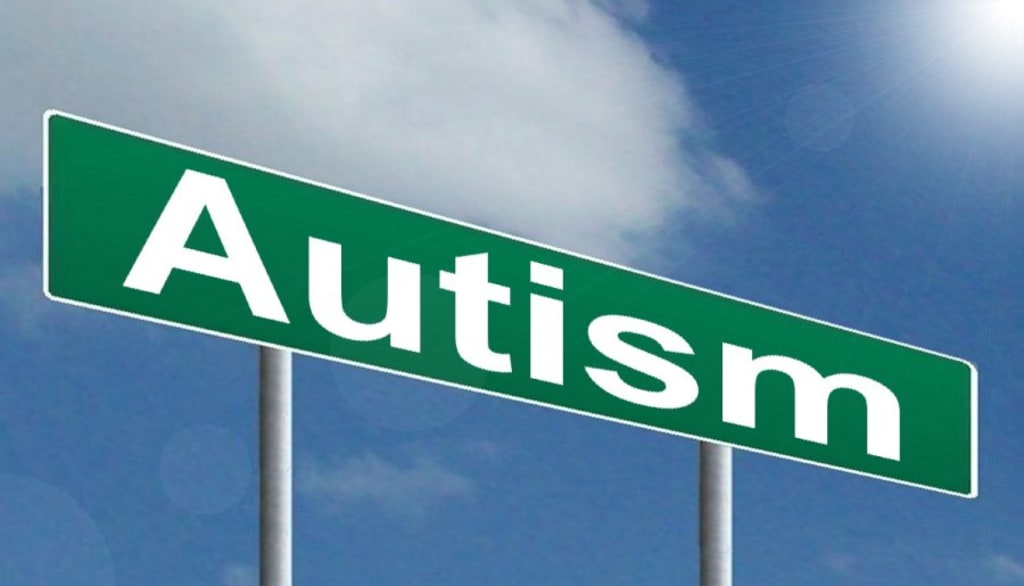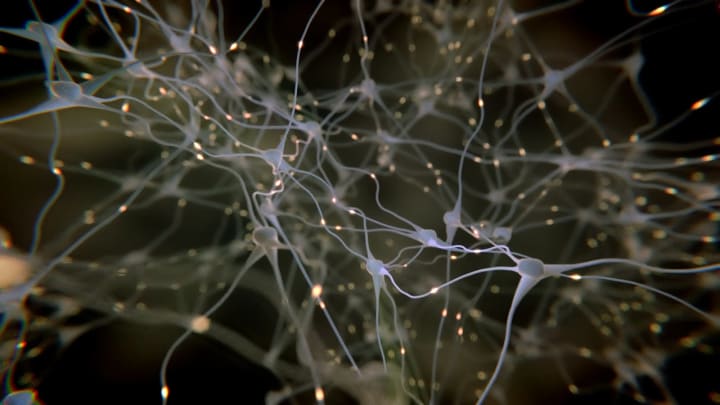What Is Autism? Part 1
Objectively Looking at Autism

For some, this can be a heated topic. I will be doing my best to keep this as objective as possible. I have been diagnosed with autism myself and have been thoroughly studying all the different aspects as I can.
Viewed by Science...

No matter what we are talking about in science, there are ranges or degrees in which something is deemed as "normal." Being abnormal isn't necessarily a bad thing, though. That being known, there are certain ways the brain functions. The brain is extremely complex, and we are still mapping it out and developing our understanding of it in specific fields of study. Autism primarily uses two major fields of study, psychology and more recently neurology. At first, we thought autism was just a social disorder. Then we found that autistic people have high sensitivities and deficits when it comes to sensory issues. A study almost a decade ago found something that turned what we thought about the root of autism upside down (the reason why neurology is highly involved now). It changed study so dramatically that they had to change the DSM. For now, people that were diagnosed with ASD (autism spectrum disorder), Asperger's, and Pervasive Development Disorder will all be diagnosed as ASD. This more abstract categorizing is to give them time to reorganize the diagnoses. These changes will be coming to the ICD in 2018.
From the DSM-V

No matter what you personally agree with, science is science. When it comes to the medical field, a condition is defined by its symptoms and if possible causes. Since we have yet to directly identify a cause, we define ASD by the symptoms. So what are the symptoms?
1. "Persistent deficits in social communication and social interaction across multiple contexts, as manifested by the following, currently or by history."
This first one seems vague to most, and by some extent, it is meant to be. Remember when I said science shows aspects to be normal in some range or degree? Psychologists are knowledgeable to what is normal and what is an actual deficit compared to the social norm. Since social communication and interaction is extremely broad and a "two way street", sometimes it is difficult to pinpoint these contexts. For example, for me, I have trouble discerning what is playful insults among friends. Due to the people I associate myself with, I assume everything is playful, unless it is easily recognized as harmful. Another is my lack of understanding of why certain things in society are arbitrarily in place. I tend to forget about those social rules (like cursing in "family friendly" places).
2. "Deficits in adaptive functioning that result in failure to meet developmental and sociocultural standards for personal independence and social responsibility. Without ongoing support, the adaptive deficits limit functioning in one or more activities of daily life, such as communication, social participation, and independent living, across multiple environments, such as home, school, work, and community."
As harsh as it sounds, this one is very straightforward. As much as we try or want to, we, autistic people, don't have the ability to be completely independent. For many of us, including myself, this aspect causes some serious depressive issues, among other problems we may have. Now this can come in many levels and types of needing support. This will vary from person to person. The full extent of what is needed may not even be known until the person is fully grown.
3. "Onset of intellectual and adaptive deficits during the developmental period."
Now this one may seem to be like the first one, but the first is geared towards what is known in the past and this one is looking at the present and predicting the future.
In any case, please seek a professional or two to be properly tested.
The Biology

We have come to understand in science that all mental disorders are completely physical in nature. There these things in our brains called neurons and glial cells. These things form pathways. The neurons and glial cells can be thought of as our "brain alphabet" with the pathways forming the language itself. We have roughly 100 billion neurons in our early half of life and about 10.6 million at birth ramping up to 36.3 million in prime life adults. The pathways themselves at birth, though it's more difficult to pinpoint an exact number, are estimated to be roughly 16 trillion, then reduce to 4 trillion as an adult. While maturing into adulthood, we prune some pathways while strengthening others. From previous generations our brains have specific levels of importance to start with each pathway. As we go through life growing up, the levels of importance can change. These pathways govern every aspects of what makes us "us," or what I suspect some would consider the soul. Due to the level of importance is why you see certain aspects running in a family, while also being able to learn new aspects. Now some of these pathways deal with our sensory organs, which many people with autism have troubles with. When I mean every aspect of us, I mean literally every aspect, including personality and other characteristics.
Until Next Time...

I will continue this in another article. Stay tuned for a part 2 as soon as I can. I will focus on the life struggles of the people with ASD.
About the Creator
Autistic Geek
31 year old autistic guy, writing about various thing. Share my posts please.






Comments
There are no comments for this story
Be the first to respond and start the conversation.